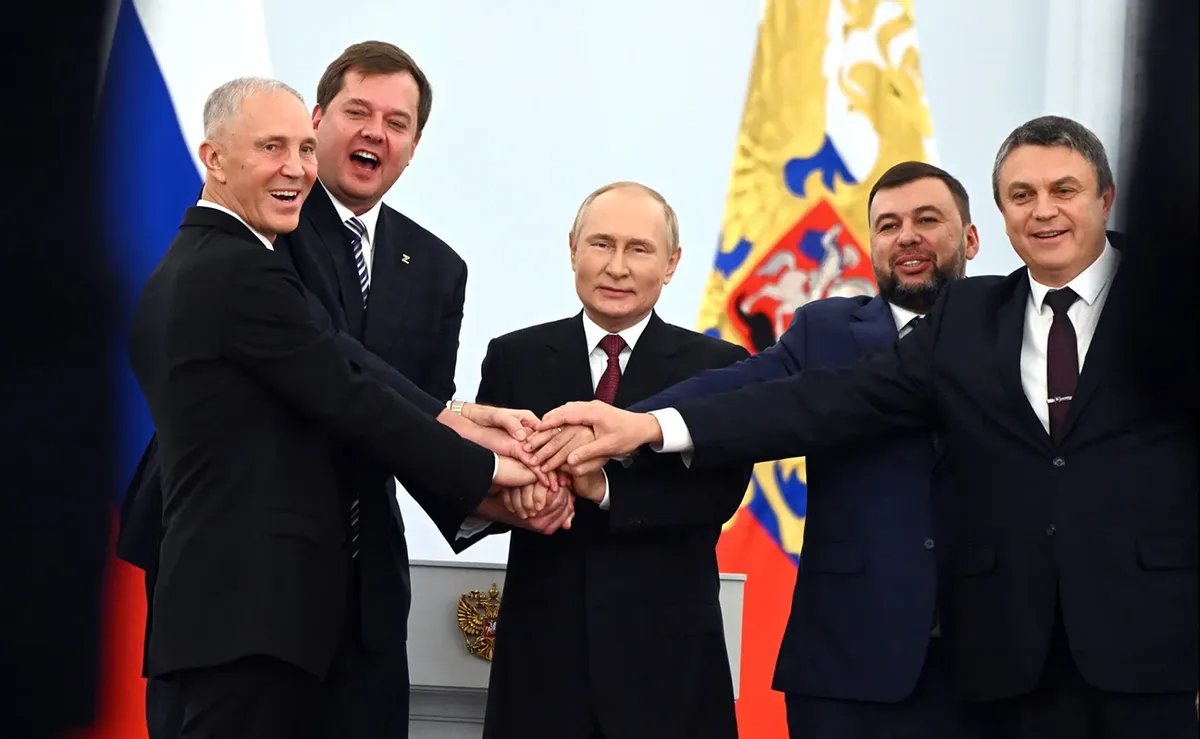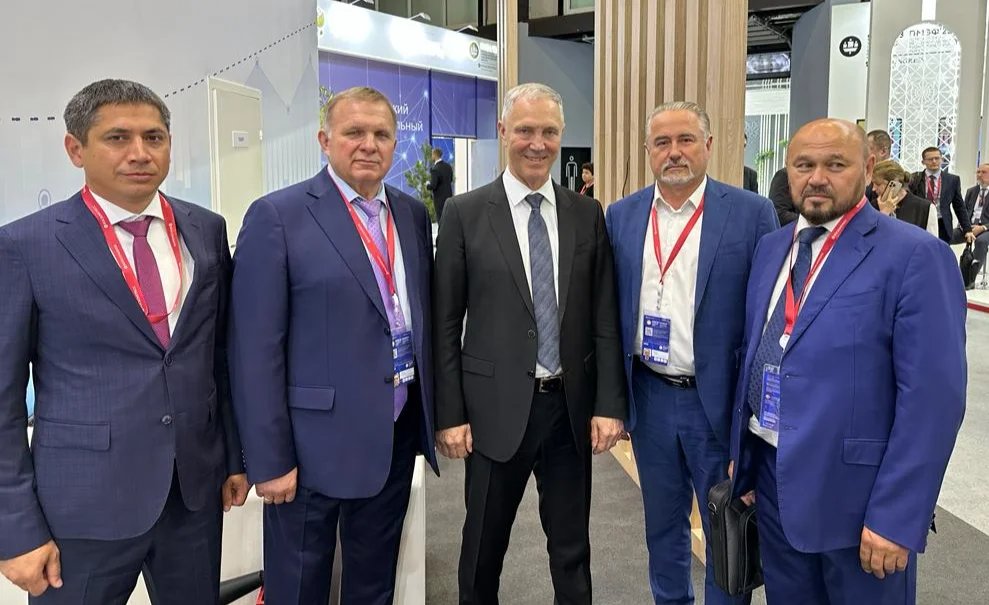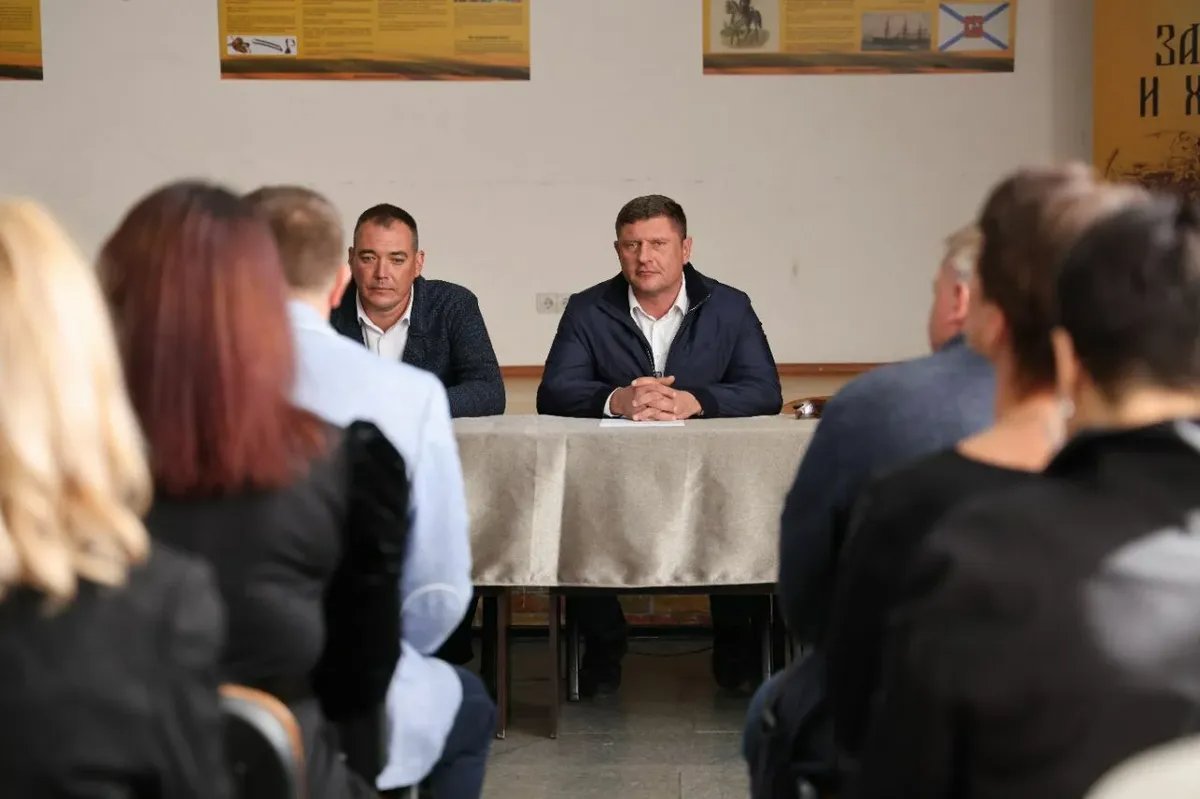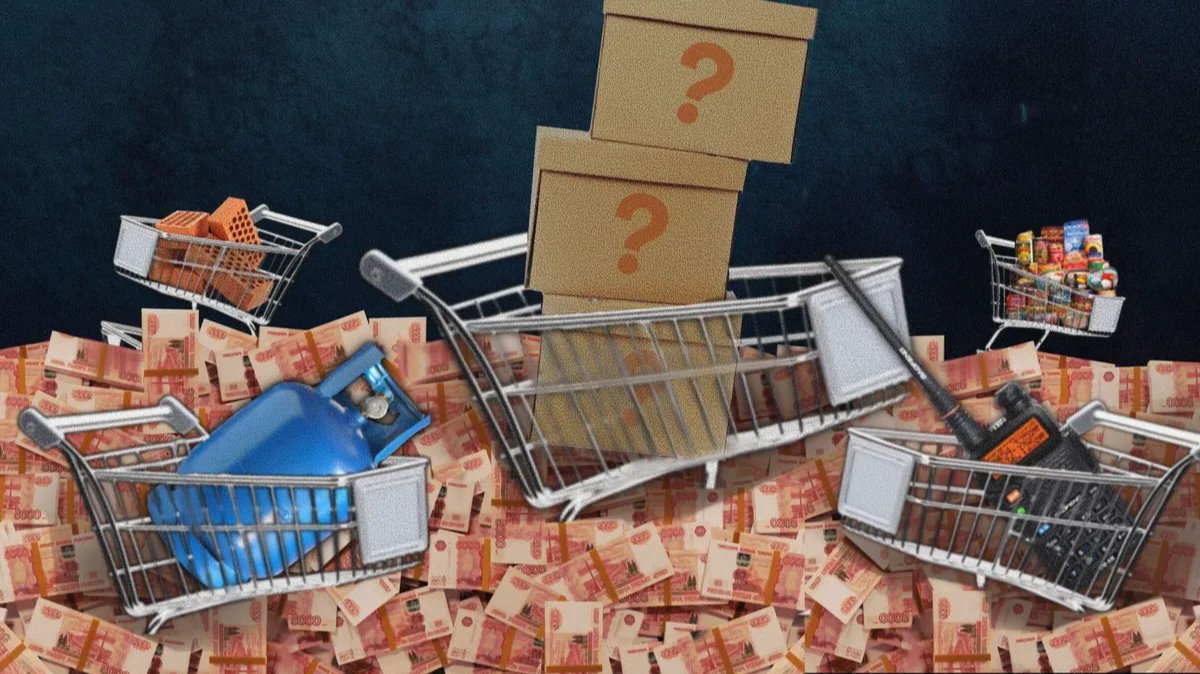In the occupied territories of Ukraine, embezzling Russian government funds has become common practice. Hundreds of billions of rubles have flowed in from Russia since last year, and corruption has flourished after a government mandate exempted officials and businesspeople from measures designed to ensure transparency.
Federal secrets
Since Russia annexed parts of Ukraine’s Donetsk, Luhansk, Zaporizhzhia and Kherson regions last year, unprecedented subsidies have poured in, accounting for more than 90% of those territories’ budgets. This year, they are collectively due to receive 483 billion rubles (€4.9 billion) from the federal budget, according to Russian business daily Vedomosti.
The self-proclaimed Donetsk People’s Republic (DPR) will receive 219 billion rubles (€2.3 billion), about twice as much as either Dagestan or Chechnya, which were previously Russia’s best subsidised regions. The self-proclaimed Luhansk People’s Republic will receive 120 billion rubles (€1.21 billion), roughly five times the amount received by some of Russia’s poorer regions such as Kostroma and Kursk. In total, the annexed territories, including Crimea, are due to receive about a quarter of all federal subsidies.
Next year, that figure will increase by a further 35%. The money will go towards salaries, pensions, construction and other expenses. A regional reconstruction and socio-economic development programme is on track to spend 233 billion rubles (€2.4 billion) this year, nearly a third of what Russia spent in rubles on the 2018 World Cup.
The federal budget is not the only source of funding for the annexed territories. This year, 55 Russian regions allocated a total of 115 billion rubles (€1.16 billion) for the reconstruction of Russian-occupied territories in Ukraine, according to the Russian news agency Interfax.
While regional spending is normally monitored through the public procurement system, which enforces various anti-corruption measures, a government decree late last year made public procurement in the occupied territories “one long exception”, Ilya Shumanov, Executive Director at Transparency International Russia, told us.
Russian “investments” in the occupied territories are only projected to grow. This year alone, the administration plans to spend almost 100 billion rubles (€1 billion) on reconstructing infrastructure, according to global Russian-language news website RTVI. The scale of reconstruction in Ukraine has been described as the “building project of the century”.

Ceremony to mark the DPR, LPR, Zaporizhzhia and Kherson regions’ incorporation into Russia. Photo: Kremlin
The Khusnullin and Kadyrov ruses
In Russia, 70% of ostensibly public contracts are not published with full transparency; it’s common practice, for example, for the name of the contractor to be redacted. This allows officials to sign secret deals with their friends, exactly the type of corruption now running rampant in the occupied regions.
Shumanov said it’s a “classic Russian practice for officials to use contractors from their region”. One of the best-known cases of this took place in 2018, when Deputy Prime Minister Marat Khusnullin, then in charge of urban planning and construction in Moscow, brought in whole teams from his native Tatarstan to work on the city’s major building projects.
Sometimes, rather than redacting names entirely, officials conceal contractors’ true identity behind a sham non-profit or trade association — entities which by law cannot conduct fully-fledged commercial activities. A prime example of this is the Akhmat Kadyrov Charitable Foundation, which Kommersant has called one of the “most opaque non-profit organisations” in Chechnya.

Vladislav Kosenko (second from left) at the St. Petersburg International Economic Forum in June. Photo: Association for Construction and Development of Road-Building Infrastructure
That fund appears to have been a model for Priazovye Invest, a company set up to handle general contracting work in the Kherson region. It belongs to the Association for the Construction and Development of Road-Building Infrastructure, which doesn’t reveal its own founders. The chairman of the association is Vladislav Kosenko, a lifelong friend of Russian President Vladimir Putin; according to the SPARK public database, the general director of Priazovye Invest is Pyotr Kosenko, a previously unknown figure in Ukraine and Russia and, it seems likely, a relative of Vladislav.
Some contractors in the annexed territories are headed by local officials and businessmen who defected to Russia after the invasion. As soon as Russian troops had seized most of the Zaporizhzhia region, the deputy of the Melitopol City Council, Sergey Zolotaryov, began to cooperate with the occupation authorities, local Ukrainian journalists revealed. Zolotaryov’s assistants seized businesses and took them over, they reported.
In terms of turnover, most of the contracting work in the four regions has been undertaken by companies from the DPR and Zaporizhzhia region. They are followed by companies from Sevastopol and Moscow.
Private security
One of the largest expenses for governments in the four occupied regions is security services. Last year, the regional governments spent at least 3 billion rubles (€31 million) on contracts with security companies.
The largest contracts, at 540 million rubles (€5,470,000), have gone to Okhrana Zaporizhzhia, a company that provides paramilitary and conventional security services for educational institutions, hospitals and other state buildings in the region.
“Okhrana is somewhere between a private security company and private military company, but it is 100% state-owned, and, together with the National Guard, provides protection for critical infrastructure,” said Sergey Bogatyryov, who collects aid for paramilitary units in the annexed regions. He said companies like Okhrana do all they can to intimidate supporters of Ukraine and thwart the efforts of professional saboteurs.
In addition to local outfits, some private security companies from Russia have also been contracted in the occupied regions. The largest of them were previously accused of monopolising the market and price-fixing.
One of these companies, Spetsgroup, part of the Stark Security group which has received approximately half of security contracts for Moscow social institutions, was fined 35 million rubles (€353,400) after the Federal Antimonopoly Service found that companies affiliated with it had fixed prices in an attempt to inflate bids in the public procurement system.
A leg-up for the most desperate
Corrupt officials have an opportunity to redeem themselves by working in the occupied territories. Andrey Alekseyenko, the former mayor of the southern Russian city of Krasnodar, was a defendant in a bribery case last year but avoided the charges by going to work in the Kharkiv region.

Andrey Alekseyenko / Telegram
Just a month later, after Ukraine’s successful counteroffensive, he returned to Russia and was then appointed head of the government of the annexed part of the Kherson region.
However, in general, the annexed territories are poor places for Russian officials to advance their careers, Alexandra Prokopenko, a non-resident scholar at the Carnegie Russia Eurasia Center in Berlin, told Novaya Europe.
Regional mid-management goes there, expecting to skip a few rungs on the ladder and to return to Russia with a promotion, but this isn’t happening on a large scale, she said. And it is still difficult to attract qualified technocrats, due to security issues. On the other hand, a fairly large group of pro-Russian figures from Ukraine have seen opportunities for advancement in the annexed regions, Prokopenko notes.
But there are still people drawn by the opportunity to profit off state contracts — at least for now.
With support from Mediaset
Join us in rebuilding Novaya Gazeta Europe
The Russian government has banned independent media. We were forced to leave our country in order to keep doing our job, telling our readers about what is going on Russia, Ukraine and Europe.
We will continue fighting against warfare and dictatorship. We believe that freedom of speech is the most efficient antidote against tyranny. Support us financially to help us fight for peace and freedom.
By clicking the Support button, you agree to the processing of your personal data.
To cancel a regular donation, please write to [email protected]

